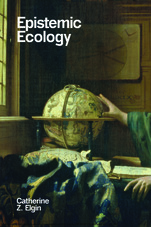
Epistemic Ecology describes how individual epistemic agents form epistemic communities and how individuals and communities both accommodate themselves to and structure the phenomena they seek to understand. Epistemic agents rely on one another to overcome individual impediments and blindspots. We devise methods, measures and mechanisms to surmount collective obstacles. We contrive benchmarks, standards and principles to assess our results. We leverage our successes and learn from our failures. Rather than construing findings as permanent achievements, we construe them as platforms on which to build. The process is a dynamic one in which we are agents rather than specators. Table of Contents. In addition to the above link, this book is also available here via open Access from MIT Press.

Philosophy valorizeds truth, holding that there can never be epistemically good reasons to accept a known falsehood, or to accept modes of justification that are not truth-conducive. But then how can this stance account for the epistemic standing of science, which unabashedly relies on models, idealizations, and thought experiments that are known not to be true? In True Enough, Catherine Z. Elgin argues that we should not assume that the inaccuracy of models and idealizations constitutes an inadequacy. She suggests that, to the contrary, that their divergence from truth or representational accuracy fosters their epistemic functioning. When effective, models and idealizations are, Elgin contends, felicitous falsehoods—epistemically valuable components of the understanding science supplies. Table of Contents
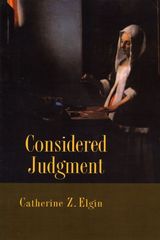
Although epistemologists now concede that Cartesian certainty is a chimerical goal, they continue to accept the traditional conception of epistemology's problematic. Considered Judgment argues that in abandoning the quest for certainty we gain opportunities for a broader purview - one that comprehends the arts and does justice to the sciences. It argues that reflective equilibrium should be the standard of rational acceptability. Findings are fallible, but if they are supported by a theory or system of thought in reflective equilibrium, they are reasonable in the epistemic circumstances. It discusses how emotions function cognitively, affording epistemic access to aspects of things we might otherwise miss. Table of Contents
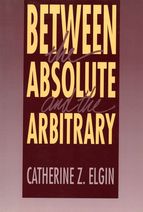
Standardly it is assumed that unless answers to philosophical questions are absolute, they are arbitrary. Unless a position is grounded in determinate, agent-neutral facts, it is right only relative to a perspective that cannot in the end be justified. Between the Absolute and the Arbitrary charts a course between the two poles, highlighting the ineliminability of values from the realm of facts, the dependence facts on category schemes, and the ways human interests, practices, and goals affect the categories we contrive. Table of Contents
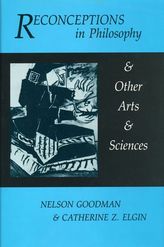
Reconceptions extends and emends the Goodmanian theory of symbols, investigating such topics as representation, interpretation, and variation in the theory of architecture, painting, music and psychology. It articulates and argues for a reconception of epistemology, arguing that understanding rather than knowledge should be the focus of epistemology's concern. Table of Contents
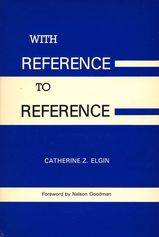
Grounded in the work of Nelson Goodman, With Reference to Reference presents a general theory of reference that shows how symbols in science, the arts and ordinary life refer to items in the world. It accommodates metaphorical, fictional, and expressive symbols as well as literal, factual symbols, thereby showing how non-literal and non-descriptive symbols connect us to the world. Table of Contents
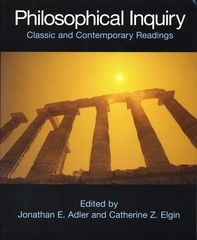
Philosophical Inquiry is comprehensive, problem-oriented introduction to philosophy, containing classical and contemporary readings. It includes sections on epistemology, metaphysics, ethics, political philosophy, aesthetics, and philosophy of religion, with a substantial introductory essay to orient students to each field. Table of Contents
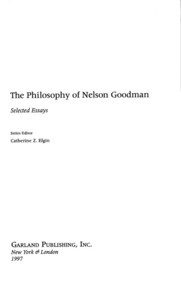
A four volume set of previously published papers on Goodman's work, with a general introduction to Goodman's work. Each volume also has an introduction to the particular aspects of Goodman's work it focuses on.
Volume 1: Nominalism, Constructivism, and Relativism in the Work of Nelson Goodman. Table of Contents
Volume 2: Nelson Goodman's New Riddle of Induction. Table of Contents
Volume 3: Nelson Goodman's Philosophy of Art. Table of Contents
Volume 4: Nelson Goodman's Theory of Symbols and its Applications. Table of Contents